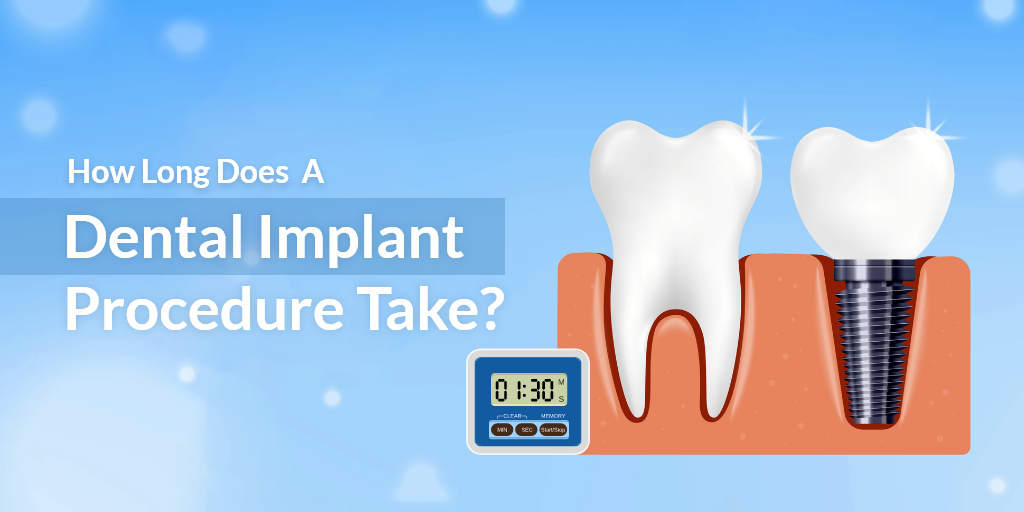Dental implants are artificial tooth roots. A dental surgeon places them in your jawbone below your gums. This doesn’t come loose like a denture as the implant fuses with your jawbone. The procedure involves several stages and can take anywhere from a few months to more than a year. But it’s the best choice for people who want a comfortable and durable solution for their missing teeth.
The Initial Stages
Step one includes a discussion with your dental surgeon. They will assess your dental health and plan the procedure. During your visit, a customized treatment plan will be created to meet your individual needs. Some patients may need bone grafting, extending the time required.
What Happens During the Implant Surgery?
Once your dentist determines you’re ready, they will begin the process of placing the dental implant. If the affected tooth hasn’t been removed before, it may need to be extracted.
After having a tooth extracted, the next step is to place dental implants in your jawbone. This process is called Osseo-integration. This generally requires anesthesia and takes around 1-2 hours.
Waiting Game
After the implant, begins the long waiting period. This period lasts until the implant integrates fully into your jawbone. It typically spans two to six months.
Placing the Abutment and the Artificial Tooth
The final stage is placing the abutment on the dental implant. This abutment holds the new tooth and can necessitate a few weeks for your gums to heal.
Finally, your dentist will make a mold of your teeth and create the artificial tooth or crown. Once it is ready, the crown is placed on the abutment, and the dental implant procedure is concluded.
Factors That Influence The Procedure Time
The time needed for a dental implant procedure depends on a multitude of factors. The number of teeth that need replacement, your dental health, if you need tooth extractions, and the need for bone grafting can all affect this. Let’s explore these factors in greater detail:
-
- Dental Health: Good dental health can lead to faster surgeries and recovery times. Individuals with gum diseases or infections may require extra treatments before getting implants. This can extend the overall procedure timeline.
- Tooth Extractions: If a tooth is affected and hasn’t been removed yet, the dentist may need to perform an extraction. The healing process after a tooth extraction could take a few weeks to several months. This can prolong the dental implant procedure.
- Bone Grafting: Dental implants require the jaw to have enough bone density and quality. Some patients may not have enough bone quality for dental implants if they have advanced gum disease or tooth loss. If needed, bone-grafting procedures may be done to rebuild or improve the jawbone. The time it takes for bone grafts to heal varies based on the person, their bone density, and the type of graft used. It can range from a few months to a year before implants can be placed.
- Individual Healing Capabilities: Patients have varying healing abilities, which can affect how long the dental implant procedure takes. Some people heal faster than others, so they can finish the treatment very quickly. Some people may take longer to recover because of their medical condition or other factors.
- Number of Teeth Requiring Replacement: The procedure’s duration will be affected by how many teeth need to be replaced. Replacing one tooth takes less time than replacing multiple teeth or a full set.
